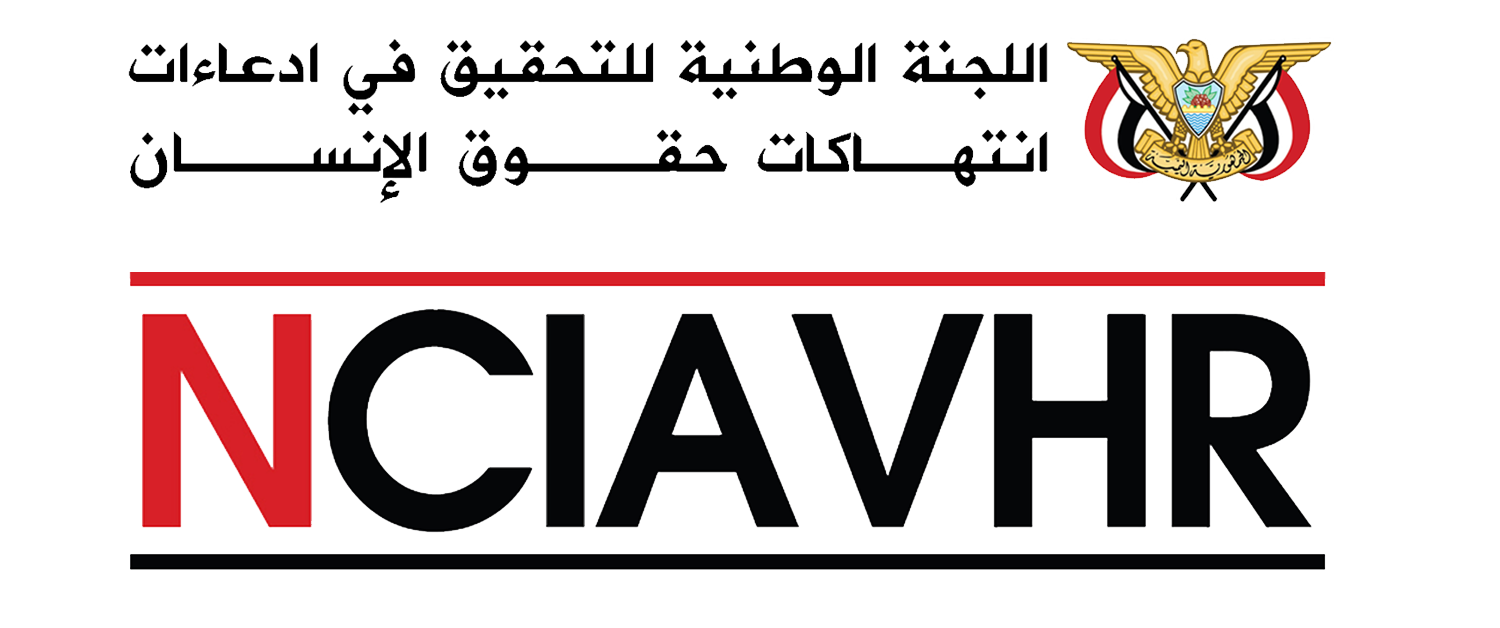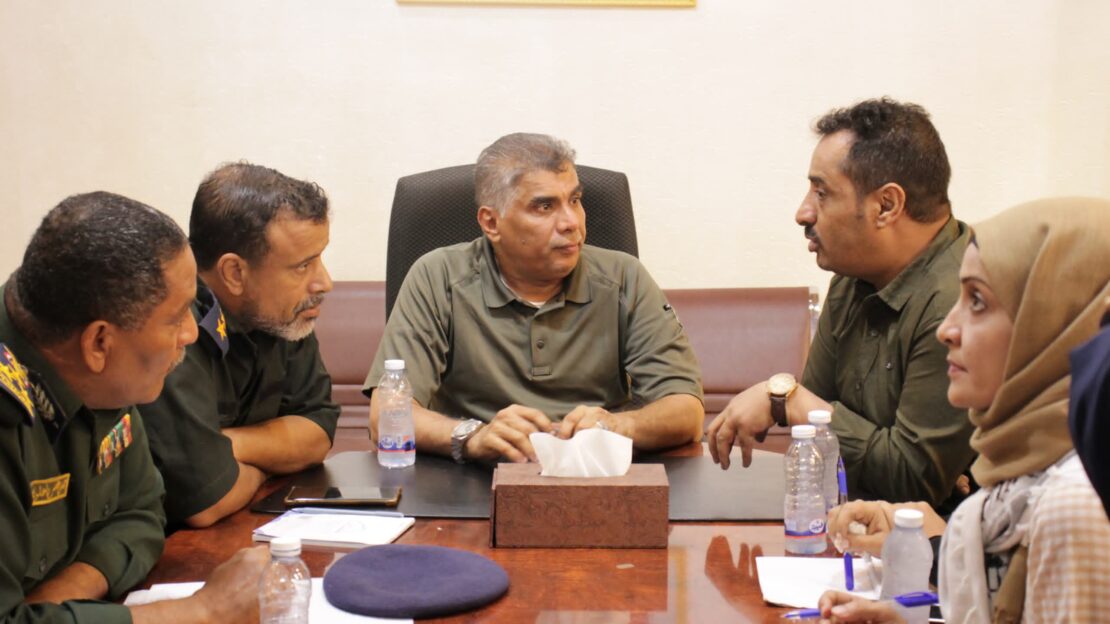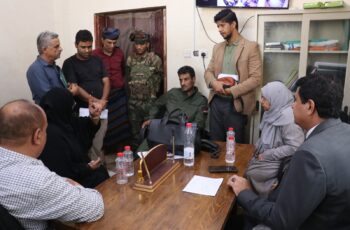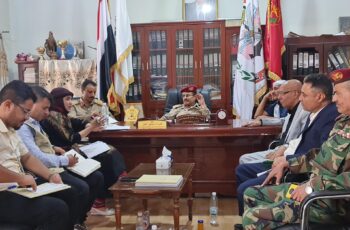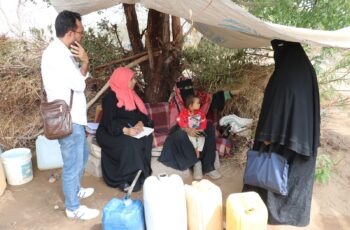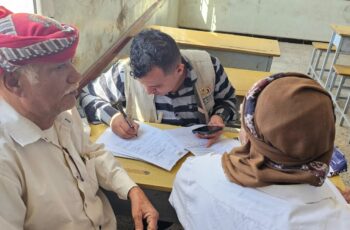NCIAVHR Reviews Legal Status of 704 Prisoners with Hadhramaut Police Chief
Mukalla | June 2, 2024
Today, the National Commission to Investigate Alleged Violations of Human Rights (NCIAVHR) met with Brigadier General Mutia Al-Menhali, the Director General of Hadhramaut Police, and several security leaders in the governorate as part of the Commission’s field visit to assess human rights conditions.
During the meeting, Brigadier General Mutia Al-Menhali emphasized the importance of cooperation between the Commission, human rights institutions, and the police administration to serve the interests of citizens, protect their rights, and maintain the security and stability that Hadhramaut is known for. Mr. Al-Menhali expressed the administration’s commitment to the recommendations and observations provided by the Commission to rectify any errors and enhance internal accountability.
Vice-Chairman of the Commission, Judge Hussein Al-Mashdali, praised the cooperation from Hadhramaut Police in helping the Commission monitor prisoners’ and detainees’ conditions to improve their living conditions and legal rights.
The meeting, attended by Commission member Judge Ishraq Al-Maqtari, Director of Criminal Investigation Colonel Hani Bashkeel, Director of Mukalla Police Colonel Salah Al-Mashjari, and Director of the Central Prison Colonel Ali Bazibidi, discussed several issues and files concerned by the Commission. These included overcrowding in detention centers, budgetary needs, and procedures to expedite case processing.
After the meeting, the Commission team visited sections of the Central Prison in Mukalla. Commission members, along with the Head of Hadhramaut Appeals Prosecution Judge Saleh Al-Saadi and the Head of the Criminal Prosecution Judge Shaker Binsh, listened to the concerns of inmates in the Central Prison, which houses (704) prisoners and detainees, including (12) women, detained on various charges in the governorate’s prosecutions and courts. Their requests included the swift processing of their cases, the completion of release procedures for those eligible, and the improvement of detention conditions, particularly health and service-related.
